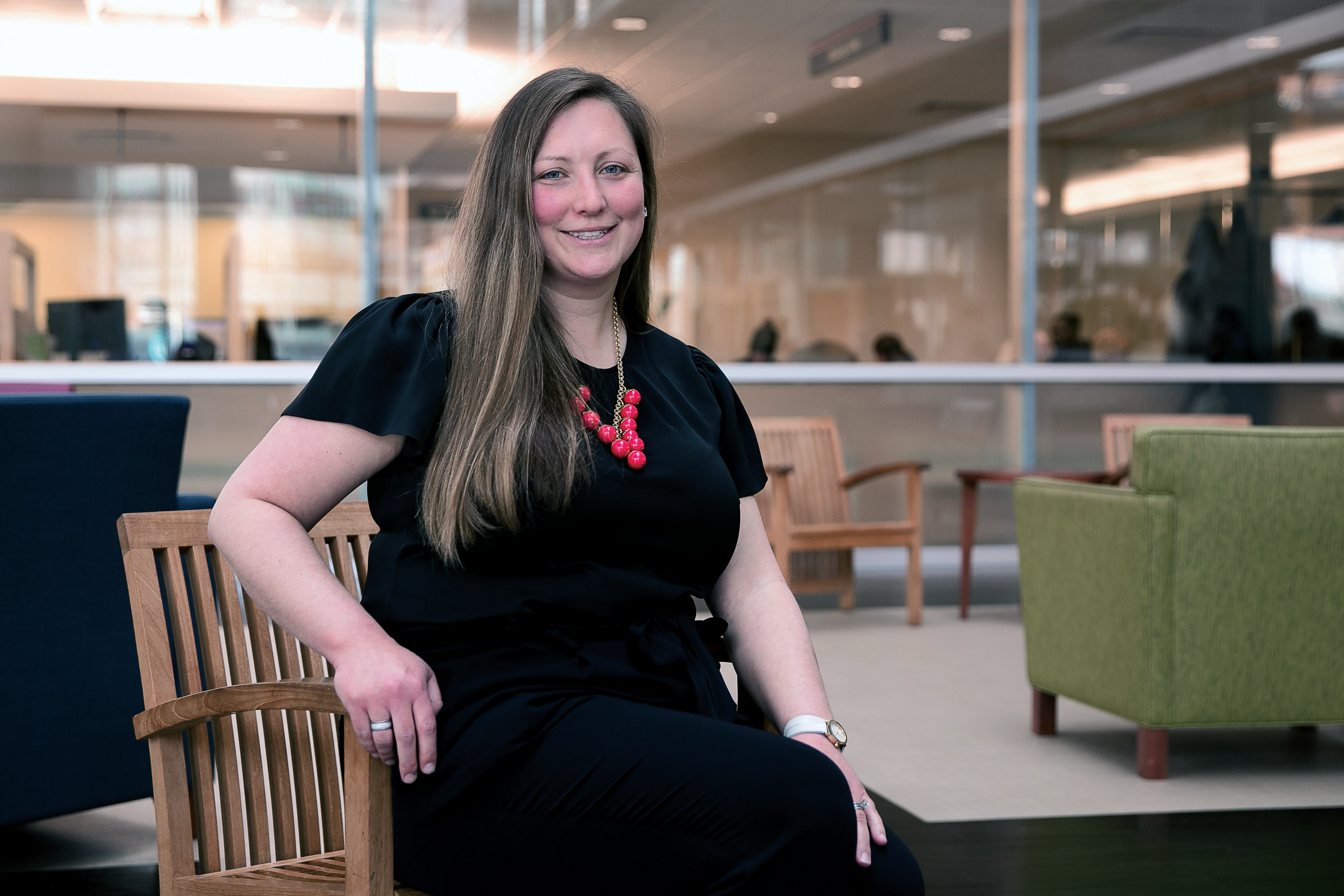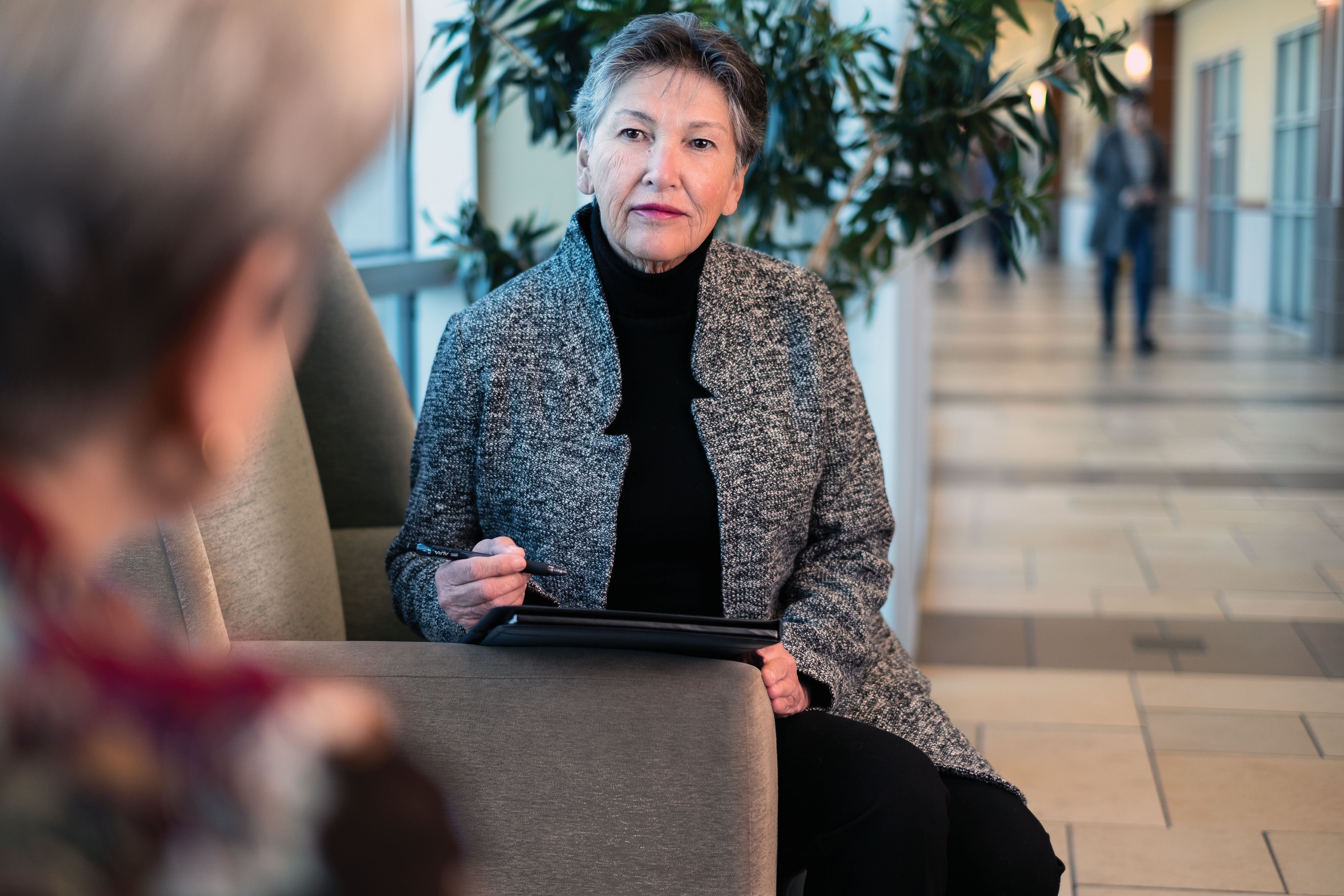The Value of Oncology Nurse Certification
Oncology care is a complex field in a constant state of paradigm shifts, where new information and research affect clinical practice in countless ways.
Amid rapid developments in treatments, technologies, and patient-care modalities, oncology nurses must show they’re up to date with emerging knowledge in their field. Oncology nurse certification is one way nurses can demonstrate their commitment to the art and science of patient-centered oncology care.
Certification is an ongoing process of learning, practice growth, evolution, and demonstration through testing. Employers have long recognized the importance of oncology certification and offered new career opportunities, recognition, and higher wages to certified nurses. Patients are becoming savvier by the day, and they’re more conscious than ever before about who their healthcare professionals are and what they demonstrate that they know. According to the American Board of Nursing Specialties (http://www.nursingcertification.org/resources/documents/research/executive_summary.pdf), certification validates specialized knowledge for a given field, and a majority of nurses polled said that becoming certified enhanced their professional credibility and feelings of personal accomplishment. Despite potential barriers to certification, nurses are still seeking and achieving certification opportunities to ensure the highest level of care for their patients with cancer.

Why Is Certification Important?
Oncology nurse certification—offered through companies like the Oncology Nursing Certification Corporation (ONCC)—can help set nurses apart from their peers, especially when developing their career path. ONS member Kristen Maloney, MSN, RN, AOCNS®, clinical director of oncology nursing at the Hospital of the University of Pennsylvania in Philadelphia, recognizes the commitment it takes to achieve oncology nurse certification.
“As a nurse administrator, oncology nursing certification demonstrates experience in practice and a specialty knowledge in cancer care,” Maloney says. “It represents a nurse’s commitment to both her career growth and continued learning. With many scientific advancements in the field of oncology, the need for specialized knowledge exists to provide qualified care to all patients.”
Outgoing ONCC Board of Directors President Rebecca O’Shea, APRN, OCN®, AOCNS®, CBCN®, CNS, oncology clinical nurse specialist at Texas Health Presbyterian Hospital in Denton, says that the requirements certified nurses must meet show a background of experience and excellence in oncology nursing.
“Becoming an RN prepares nurses for the entry-level qualifications to practice in oncology,” O’Shea says. “Certification takes them to the next level. To qualify for certification, a nurse must have more than two years of RN experience along with 2,000 hours of oncology experience. Certification is a voluntary process—one that a nurse willing undertakes and maintains—and it signifies that he or she has specialty knowledge beyond entry-level practice. It really highlights a commitment to lifelong learning and patient-centered care.”

“Becoming an RN prepares nurses for the entry-level qualifications to practice in oncology,” O’Shea says. “Certification takes them to the next level. To qualify for certification, a nurse must have more than two years of RN experience along with 2,000 hours of oncology experience. Certification is a voluntary process—one that a nurse willing undertakes and maintains—and it signifies that he or she has specialty knowledge beyond entry-level practice. It really highlights a commitment to lifelong learning and patient-centered care.”
Maloney and O’Shea both recognize the importance that certified oncology nurses have in the team environment. Demonstrating expertise through certification empowers nurses to step into leadership roles.
“Certified oncology nurses are seen as leaders in their institutions,” Maloney says. “The ability to influence and drive patient outcomes with their experience and knowledge through certification is key for oncology nursing. Certification can also play a vital role when working on an interprofessional team to help reinforce patient-centered care and advocacy.”
How Certification Affects Practice
A majority of nurses polled reported that certification helped them feel more confident in their practice and be more certain about the care they provide. Moreover, 99% of nurse managers and administrators (https://doi.org/10.1188/10.CJON.E63-E69) said that oncology nurse certification validated a nurse’s specialized knowledge in practice.
“Oncology certification is a quality indicator and a real value added to the healthcare team,” O’Shea says. “Not only does it show a commitment to excellence, but it shows a passion for oncology care. Nurses wear certification like a badge of honor, an example of the steps they’ve taken to prove their qualifications, experience, and expert knowledge in oncology care.”
Maloney says that because of the speed at which oncology care evolves, nurses must be current with practice changes. With new treatments and indications being released from the U.S. Food and Drug Administration every day—not to mention advancements from nursing science—it’s important to have nurses on staff with the experience and expertise to translate new developments into practice.
“Similar to keeping current with the advancements in science, certification also helps nurses stay current with new developments in cancer nursing care,” Maloney says. “Along with providing updated knowledge, oncology nursing certification increases accountability and self-confidence as nurses advance their clinical practice.”
Nursing certification not only denotes a passion for practice but a commitment to lifelong learning, and that attitude is contagious.
“Certified nurses are motivators. They motivate their peers to obtain certification, and they motivate patients and families to demand the highest level of oncology care through their cancer journey,” O’Shea says. “Oncology certified nurses understand that just because one’s formal education is over it doesn’t mean the learning stops.”
Overcoming Barriers to Certification
Cost is often cited as one of the most critical barriers associated with obtaining oncology nurse certification, followed by a fear of potential failure. ONCC recognized that nurses and institutions were facing obstacles, and they developed a program to help.
“Certification requires work—nurses have to pass a rigorous exam—and you can’t walk in off the street and just ace the test,” O’Shea says. “There’s work involved, and some nurses have had bad experiences taking tests and passing their nursing board exams. Some of the best nurses I know are not great test takers. Because it’s a financial commitment as well—whether for the nurse or an institution—ONCC wanted to alleviate some of those potential barriers and fears of failure by offering the FreeTake program. It gives nurses the opportunity to retake their certification exam if it didn’t go well the first time. Not everyone is a perfect test taker, and FreeTake removes some of that anxiety for nurses.”
Some nurses may be skeptical about the value or benefits of oncology nurse certification. When seeking answers, Maloney suggests getting your information first hand.
“If you’re interested in obtaining certification, speak with an oncology certified nurse first and foremost,” Maloney stresses. “That firsthand experience can help answer a lot of questions—from the benefits of certification, to how it impacts your career, to those truly helpful tips and tricks when studying for the certification exam. In my experience, resources like ONS’s online course bundles, in-person learning, review books, and test blueprints are keys to success.”
From the Patient’s Point of View
Patients and their families are more healthcare savvy than ever before. They recognize the important qualities of an effective caregiver, and they notice nursing certification.
“In my experience, patients and families are starting to inquire about whether a nurse is certified,” Maloney says. “Their knowledge about the healthcare system and certification, specifically, is a lot deeper than it used to be. Patients and families are aware of a nurse’s ability to obtain certification, and they’ve expressed feelings of comfort and safety in the care they’ve received from certified nurses.”
Seeing that their oncology nurses are certified can help patients feel confident in the care they receive, and it can translate to more advocacy and shared decision making as well.
O’Shea adds that the continued rigor of maintaining certification also instills patient confidence in their oncology nurses. “Every four years a nurse must recertify, so they’re under constant review and scrutiny to maintain the highest level of practice. Patients can rest easy knowing their nurses are always working with the latest in oncology information and education.”
The Future of Oncology Nursing Certification
As the population of patients with cancer continues to grow, they’ll rely on the care of qualified professionals more than ever before. Oncology nursing certification can help prepare nurses for the mounting wave of cancer survivors, along with newly diagnosed patients.
“Healthcare professionals recognize the growing number of new cancer diagnoses—along with the increasing number of cancer survivors—in the United States,” Maloney says. “The need for oncology certified nurses is greater now than ever before. Investing in certification to distinguish the care oncology nurses provide is valuable to organizations, oncology colleagues, and patients and their families.”
Ultimately, all oncology nurses are proud of the care they give, but O’Shea says that certification can help them grow in their practice and in their career.
“Becoming certified can help nurses stand up and stand out. It creates champions, mentors, and heroes in practice,” O’Shea says. “I honestly think that every nurse with certification has the potential to be somebody’s role model. They can help change the face of practice and advocate for their patients at all levels of care.”
